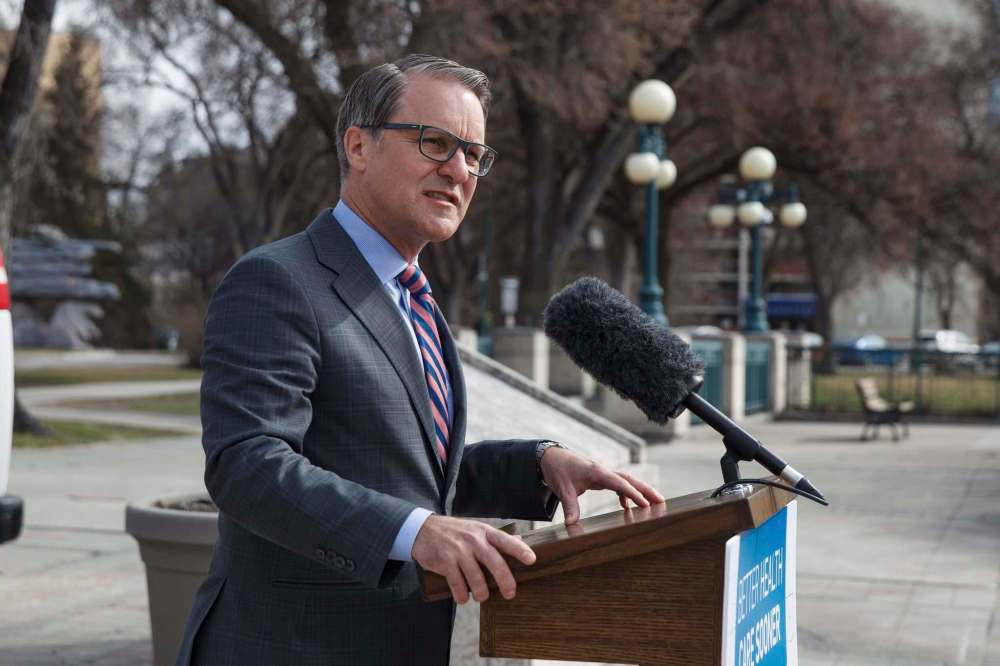Organ donation update a small step in right direction
Read this article for free:
or
Already have an account? Log in here »
To continue reading, please subscribe:
Monthly Digital Subscription
$0 for the first 4 weeks*
- Enjoy unlimited reading on winnipegfreepress.com
- Read the E-Edition, our digital replica newspaper
- Access News Break, our award-winning app
- Play interactive puzzles
*No charge for 4 weeks then price increases to the regular rate of $19.00 plus GST every four weeks. Offer available to new and qualified returning subscribers only. Cancel any time.
Monthly Digital Subscription
$4.75/week*
- Enjoy unlimited reading on winnipegfreepress.com
- Read the E-Edition, our digital replica newspaper
- Access News Break, our award-winning app
- Play interactive puzzles
*Billed as $19 plus GST every four weeks. Cancel any time.
To continue reading, please subscribe:
Add Free Press access to your Brandon Sun subscription for only an additional
$1 for the first 4 weeks*
*Your next subscription payment will increase by $1.00 and you will be charged $16.99 plus GST for four weeks. After four weeks, your payment will increase to $23.99 plus GST every four weeks.
Read unlimited articles for free today:
or
Already have an account? Log in here »
Hey there, time traveller!
This article was published 24/04/2019 (2420 days ago), so information in it may no longer be current.
About 200 people in Manitoba are on a waiting list for a kidney transplant. Too many of them will die waiting.
Manitoba has one of the highest numbers of patients in need of organ transplants, and one of the lowest rates of registration.
On Tuesday, Health Minister Cameron Friesen announced the province is retiring paper organ-donor cards and moving the process entirely online, via the signupforlife.ca website.

Mr. Friesen indicated the province is choosing to focus on educating people about registering as a donor before considering a presumed-consent model — recently adopted in Nova Scotia — where those who don’t wish to donate can opt out.
Nova Scotia already has the highest rate of organ and tissue donor registration in the country. Last month, the province passed legislation in the form of the Human Organ and Tissue Donation Act; under the new legislation — the first of its kind in North America — everyone is a potential donor unless they opt out, and will be automatically referred to donation programs to determine if they are good candidates. (Those under 19 years of age and those without decision-making capacity will be exempt.)
Those who feel this legislation is a form of government-sanctioned body snatching that could result in unwilling donors likely don’t understand the process of organ donation or the role next of kin plays — and will continue to play — in medical decision-making.
First, Winnipeg’s Health Sciences Centre has had the kind of mandatory referral policy that’s part of Nova Scotia’s legislation since 2014, meaning all families of deceased patients are already offered the opportunity to donate. (It should also be noted that the circumstances under which a person’s organs can be used are extremely rare; you are six times more likely to need a donor organ than to be eligible to provide one.)
More importantly, transplant physicians are not hovering expectantly in the wings like vultures. The Nova Scotia legislation makes clear: “Families will continue to be consulted about their loved ones’ wishes regarding organ or tissue donation.”
In Manitoba, even if the deceased has signed onto the organ-donor registry, family members can reverse that decision, the same as under presumed consent: if the deceased has not opted out, but his next of kin know or suspect he was not in favour, they can override the donation.
Decisions involving mortality make many people uncomfortable and are often postponed until it’s too late.
There are currently about 37,000 registered donors in Manitoba. About 11,000 of those can be attributed to what’s been called the Logan Boulet effect. The young hockey player, who died in the Humboldt Broncos bus crash, was an organ donor. His generosity directly saved the lives of the six people who received his organs, but his actions — and those of his family, who followed his wishes even in their grief — had an even wider-reaching effect, inspiring about 100,000 Canadians to register as organ donors in the weeks following his death.
It’s unfortunate, but not surprising, that it takes this kind of nudge to make us consider the value inherent in a body we will no longer need. Decisions involving mortality make many people uncomfortable and are often postponed until it’s too late.
It’s a grim fact that no government education program can come close to the effect Mr. Boulet’s gesture inspired, and the hundreds of Manitobans in need of new hearts, livers or kidneys shouldn’t have to wait for the results of a new ad campaign. Adopting an opt-out policy for organ donation would allow the province to do more than show its heart is in the right place.










